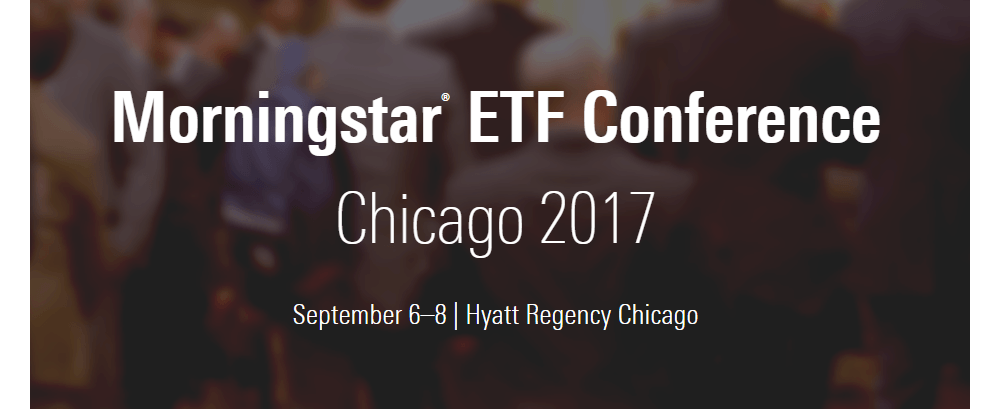This week, those involved in the ETF industry descend upon Chicago for the annual Morningstar ETF Conference. If the attendance and size of sponsorship presence is any indicator, the outlook is still strongly bullish for ETFs ─ but that’s not to say that there aren’t naysayers in different corners of the industry.
Just six weeks ago, hedge fund luminary Paul Singer joined the chorus of those who have said that the gigantic push into passively managed ETFs has compromised the investment markets. In his words, passively managed ETFs are “devouring capitalism” and sidelining the voice of smaller investors as a result. Others have wondered whether markets are now more at risk due to the amount of assets bundled up into the ETF product structure. Yet, here we are, launching into what promises to be another busy fall for the industry while the total assets committed to ETFs here in the U.S. continues to climb above $3.1 trillion.
Franklin Templeton kicked off the post-Labor Day buzz for the industry with a pair of new listings, following closely on the launch of the disruptive low-cost physical gold ETF from GraniteShares (NYSE:BAR) heading into the holiday weekend. The point being: there is no off-season anymore in this explosive growth industry.
Fortunately for those worried about ETFs taking any undue heat, the risk hawks are focused more on issues like the North Korea nuclear situation, the fallout from extreme weather events like Hurricane Harvey, the pillaging effect of Trump’s policies on global economic outlook and the aging bull market here in the U.S. ETFs are off the hook – or at least, out of focus – this week.
Here’s what we’re watching heading into the Morningstar ETF Conference:
- The upstarts of the ETF industry are getting their due. I’ve long been a proponent of cultivating a strong “middle class” of ETF issuers to create a sustainable engine of innovation for the industry. This middle class is generally formed by those upstarts that have made it. Have you seen what ROBO is up to lately? How about the overall success of Exchange Traded Concepts as a white label platform? Check out what ETF.com’s Dave Nadig had to say earlier this month.
- Call it the commoditization of commodity ETFs. Just like the first batch of ETFs did to the mutual fund industry, a new round of issuers are doing to the establishment: they are lowering the bar for basic asset class exposure. The success of State Street-backed GLD, despite its expense ratio at 40 basis points, showed that there was demand for physical gold asset allocation tools. Others piled in, but GraniteShares’ offering of BAR at 20 basis points shows the impact of fee compression on the business. It’s only a matter of time before the established players like GLD and IAU reduce their fees or see a trickling out of assets to lower cost options. BAR and its sister ETF, COMB, underscore the fact that commodities are no longer immune to the focus on fees.
- A whole industry of service providers have grown up to serve the ETF issuer community. The first wave of service providers came from the obvious places: attorneys, accountants, fund administrators, etc. Now, there are marketers, wholesaling services, white label platforms, PR firms like us, and portfolio management service providers. Just like the deal-making wave of consolidation has hit the ETF issuer community directly, it stands to reason we will see some consolidation in the service provider community.
Gregory FCA will be represented at Morningstar ETF. Look for me or Alex Nye from our team there this week and follow us at @Joeanthony, and @AlexNyePRGuy.
